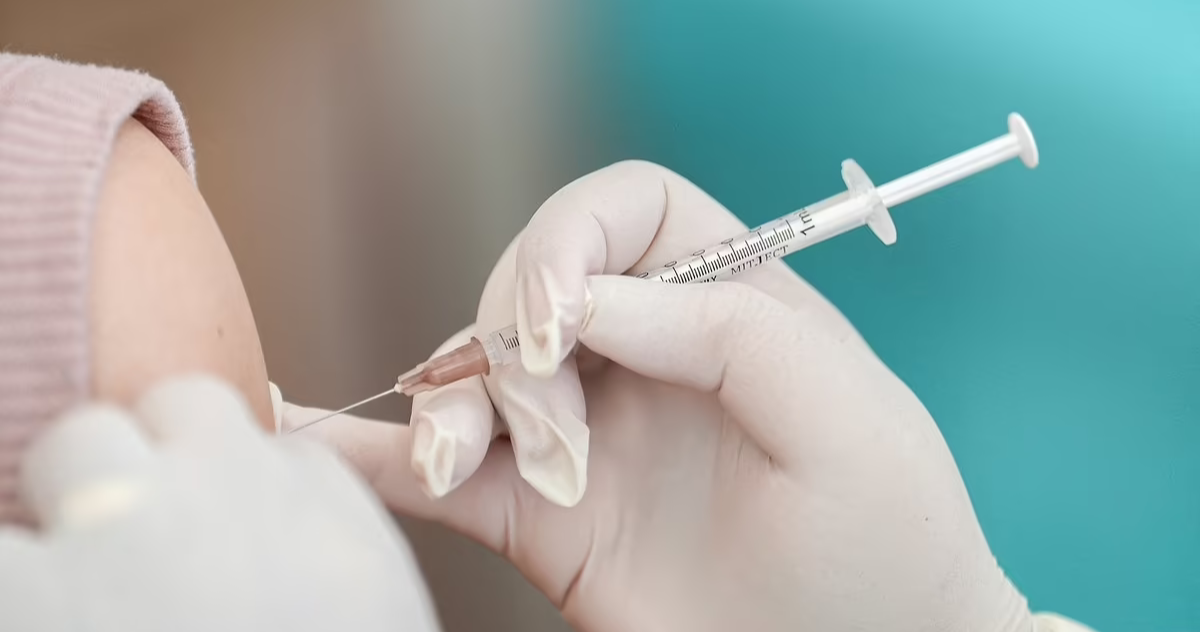UK ( Parliament Politics Maganize ) – A panel offering immunization recommendations has recommended to the government the implementation of routine vaccination for individuals at the highest risk of contracting gonorrhoea. The proposal to introduce a vaccine for preventing gonorrhoea is groundbreaking, particularly given the current record-high levels of infection.
The Joint Committee on Vaccination and Immunisation (JCVI) has further endorsed a continuous routine vaccination approach to guard against mpox, previously identified as monkey pox. The recommendation suggests that both initiatives should be available opportunistically through specialized sexual health services, leveraging their expertise in evaluating individuals at heightened risk of bacterial sexually transmitted infections (STIs).
JCVI’s Recommendation On Gonorrhoea
The JCVI’s guidance on gonorrhoea recommends employing the 4CMenB vaccine, presently employed to safeguard children from meningococcal diseases like meningitis and septicaemia. Given the close genetic relationship between meningococcal disease and gonorrhoea, there is evidence indicating that the 4CMenB vaccine can offer certain cross-protection against gonorrhoea. According to experts: “Any routine vaccination offer to those at highest risk of infection will help ensure we remain on top of the disease and prevent any major future outbreaks“.
The JCVI recommends that the main focus of both vaccination initiatives should be on gay and bisexual men, as well as other men who have sex with men, particularly those at the highest risk. Additionally, the advice specifies that individuals at an equivalent risk, encompassing those who may identify as heterosexual or otherwise, should also be offered the vaccine. This advice follows a June report from the UK Health Security Agency, which disclosed a 50% increase in gonorrhoea diagnoses between 2021 and 2022.
Professor Andrew Pollard, who serves as the chair of the JCVI, remarked: “Introducing a MenB vaccination programme to prevent gonorrhoea in England would be a world first and should significantly help to reduce levels of gonorrhoea, which are currently at a record high.”
Guidance Regarding Mpox
Meanwhile, the guidance regarding mpox stems from an outbreak in May 2022 and the sustained community transmission that has persisted in the UK since that time. The JCVI has stated that it will continuously review the immunization guidance, with eligibility subject to reassessment as additional information on vaccine effectiveness and the duration of protection emerges.
Katy Sinka, the head of sexually transmitted infections at the UK Health Security Agency, expressed appreciation for the intervention concerning gonorrhoea, emphasizing that it enhances readiness “to address this increasing threat.
We saw a rapid rise last year with more cases than ever before and with gonorrhoea becoming increasingly resistant to antibiotics, tackling this infection is a serious concern,” said Ms Sinka.
“And while mpox case numbers across England remain very low, we should not be complacent. “Any routine vaccination offer to those at highest risk of infection will help ensure we remain on top of the disease and prevent any major future outbreaks.”
The JCVI recommends that both initiatives be made available opportunistically through specialized sexual health services, leveraging their expertise in assessing and identifying individuals at an elevated risk of bacterial sexually transmitted infections (STIs).
The Department of Health and Social Care ministers will now thoroughly consider this advice before making any policy decisions regarding new routine immunization programs. If the advice is accepted, the operational details regarding how the vaccine will be delivered will be subsequently outlined.
Targeted Vaccination Program
The JCVI’s recommendation for gonorrhoea underscores the use of a targeted vaccination program employing the 4CMenB vaccine. This vaccine, currently administered in routine childhood programs, serves to prevent meningococcal diseases, including meningitis and septicaemia.
Meningococcal disease (Neisseria meningitidis) and gonorrhoea (Neisseria gonorrhoeae) exhibit close genetic relatedness, supported by evidence indicating that the MenB vaccine offers a degree of cross-protection against gonorrhoea.
Upon reviewing the evidence, the JCVI observed that despite the relatively modest documented effectiveness of the vaccine against gonorrhoea, ranging between 32.7% to 42%, a substantial number of cases could still be prevented.
Importantly, it was highlighted that the disease itself does not confer protection against reinfection, and individuals affected by gonorrhoea are commonly susceptible to repeat infections. The JCVI further assessed the presented evidence in terms of program cost-effectiveness and the probable impact on the incidence of gonorrhoea.
While the primary advantage of a vaccination program is anticipated to manifest at a community level, resulting in a substantial decrease in overall case numbers, individuals who receive the vaccine can also anticipate a certain reduction in their personal risk of contracting gonorrhoea.

